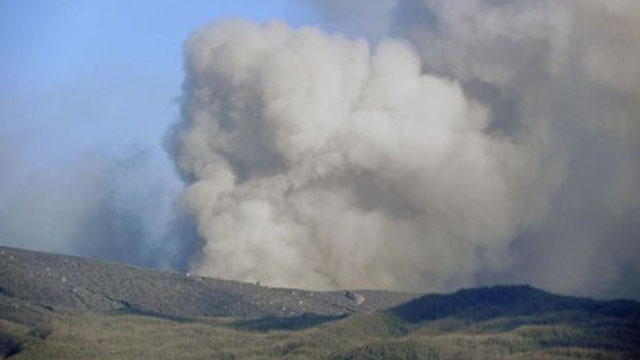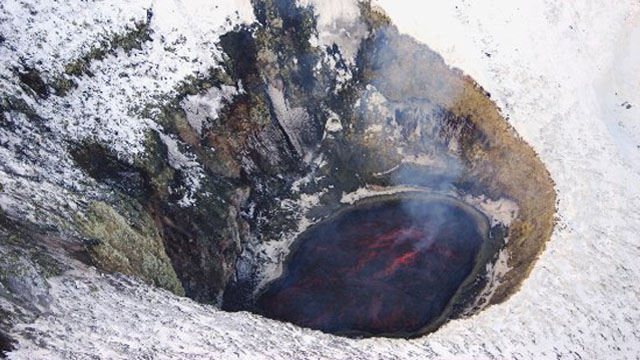Tuesday Tidbits: Soputan eruption, alert lowered at Taal, Taupo earthquake, Australian fears and Argentine recovery

We are now in the heart of the summer after the long weekend (well, at least here in the US) … and it means that I’m within a week of leaving to do some field work in California, so busy I am. So, to start the week, let’s try to gather up some of the happenings of the weekend:
Indonesia: I did post over the weekend about the eruption at Soputan (top left) in Indonesia. It appears now that the explosive activity is ongoing, with another 5 km ash plume produced on Sunday and PVMBG has set up an 6-km exclusion zone around the volcano. Indonesia authorities along with the Red Cross have also started handing out dust masks to local residents to protect against the ash. However, even with all this activity, no evacuations have been called for the region near Soputan.
Philippines: As the activity at Soputan ramped up, PHIVOLCS officially downgraded the Alert Status at the restless Taal caldera from 2 to 1. The combination of lower seismicity, usually less then 10 earthquakes a day, less hydrothermal activity on Volcano Island in Taal Lake and lower carbon dioxide emissions seem to suggest that things have settled down at Taal. Remember, this doesn’t mean an eruption won’t happen, just that the probably seems to have diminished with the lessening of these signs of volcanic restlessness.
New Zealand: While not directly related to volcanism, there was an earthquake only 30 km to the west of the Taupo caldera today. There are some conflicting reports of the magnitude of the tremor, with NZ Geonet reporting it as a M6.5 and the USGS listing it as a M5.3, but both agencies put the source of the earthquake deep – over 150 km down. This is well below any of the magmatic system underneath the Taupo caldera. However, as with any large earthquake near a caldera, it does give one pause to wonder if we’ll see any changes in the behavior of the caldera. This usually manifests as changes in hydrothermal features like geysers and hot springs, but so far nothing has been report and little to no damage has been seen from the earthquake as well.
Australia: Is it just me, or is Australia overly paranoid about a volcanic eruption on the relatively quiescent continent? Back in 2009, there as a media scare about volcanism in Australia after Dr. Bernie Joyce came out saying that the Atherton Tables in far North Queenslands were “overdue”. Well, Dr. Joyce is back, again proclaiming that it has been over 5,000 years since an eruption in the volcanoes near Victoria but they should erupt “every 2,000 years”, meaning they are “long overdue” and that the region should brace for an eruption soon. It seems that this new media attention to the claims is thanks to Dr. Joyce presenting the findings at a meeting in Melbourne this week, but it just goes to show, the media really never learn.
Argentina: Finally, the Argentine government announced plans to help those who have been effected financially by the Puyehue-Cordón Caulle eruption. Over $2.4 billion will be allotted to the farmers and businesses in the regions hardest hit by the ash and another $7 million will go towards cleaning up the ash. It is estimated that the farmers alone lost over $24.3 million due to the activity at Puyehue-Cordón Caulle and the airports at Bariloche and Neuquen have been closed since June 4.
Top left: The plume from Soputan as seen from an aircraft on July 3, 2011.





